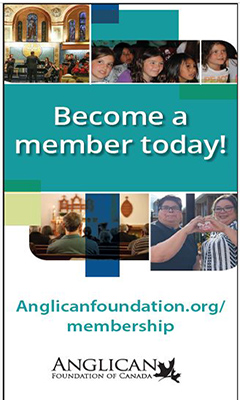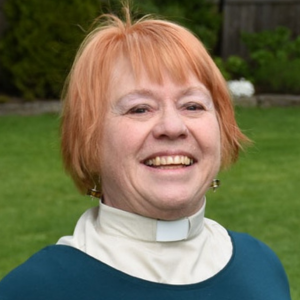Anglican Deacons Canada meets virtually to discuss the role of deacons in a pandemic-shaped world
Anglican Deacons Canada (ADC) had its first virtual conference in July (2021). Our Lutheran siblings and their national Bishop joined us formally for the first time. The focus was “What is diakonia in a pandemic-shaped world?”
Archbishop Linda Nicholls, the primate, reminded us of that with the renewal of the diaconate and the unequivocal statement from the Lambeth conference of 1968 that the diaconate was no longer considered an “inferior order.” She said she thought the last 50 years had been preparation for this liminal time of the church. Deacons have been preparing and growing into what the church needs now.
The restoration of the diaconate has it roots in a movement spanning denominations and centuries. The DIAKONIA World Federation began with the decision to formalize the working relationships between deacons from several European countries and denominations in 1947. While this was in response to the havoc created by World War Two, it was also a response to a growing awareness of the need for “diakonia.”
In the diocese of Islands and Inlets the restoration of the holy order of deacons began nearly 40 years ago. The first distinctive deacon (The term “distinctive” deacon may not be familiar. It is used in the Church of England and in other places to indicate they are not “transitional” deacons whose vocation is priestly), William Savage, was ordained in this diocese in 1982. A decade later Margaret Edgar, Dolly Beaumont and Dennis Wheeler were the first “wave” of deacons in the diocese. The Association of Anglican Deacons in Canada (AADC now ADC) was formed in 2000. Today, there are distinctive deacons in most dioceses of the Anglican Church of Canada.
The Archbishop went on to say that the narrative some might still hold about the church and its historic relationship with political and social prestige is no longer true. “We are and will be a church without influence and need to shed the millstone of colonial structures.” Deacons call the church to attention; this is a time for “a new and deepened servanthood of all.”
The primate used the image of the deacon as a foot in the door, pushing open and calling the faithful into service. The deacon, she said, observes, notices and names the disparities, the needs.
The national bishop of the Evangelical Lutheran Church in Canada, Susan Johnson, whose denomination has a long history of the diaconate, reminded us that deacons are to lead and work to ensure the gospel is heard as good news. Deacons are living bridges.
All this was woven together in a gospel song “We seek your Kingdom” (“We seek your Kingdom” www.youtu.be/vS_fCJJvVOY) shared at the end of the conference. The singers were living in pandemic reality but invited all to embrace our vocation and “transform, revive and heal society.”
The primate’s address can be found in its entirety at: www.anglicandeacons.ca



